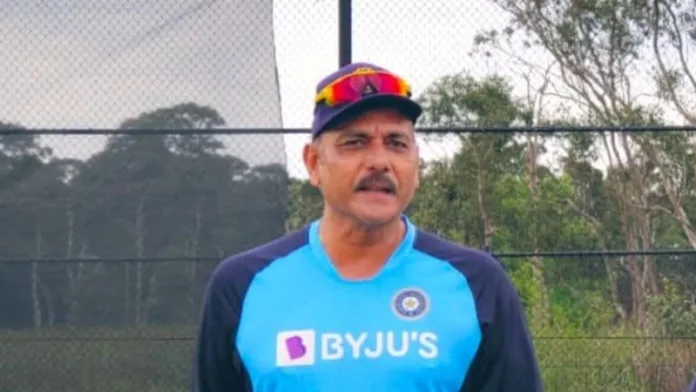The Indian national cricket team was leading the points table before the Covid-19 pandemic with three series wins and one loss. Then the International Cricket Council (ICC) decided to change the criteria for qualifying for the final by introducing a percentage system. This meant Indians had to win series in Australia and against England to qualify for the final. Although the Indian team made it to the final, Ravi Shastri seemed to have not forgotten about the sudden fall in ranking the Indian team had to face because of changed rules.
A dig at ICC
“If you ask me about the first cycle, please don’t shift the goalposts. I am sitting at home because of COVID-19 in the month of October with more points than any other team, 360 apparently (having won three series and lost one). A week later without knowing some rule comes that we are going to go (move) into the percentage system and we go (slip) from number one to three (in points table).”
He continued, “Fine that’s because of countries not wanting to travel, countries that are in the red zone. All acceptable and fine. I want to understand the logic because now it’s like “What’s the way forward for me?” Sitting 60 to 70 points ahead, I am told, now you have to go to Australia and what you have to do? You have to beat Australia.” “If you don’t beat Australia, you come back home and you have to then beat England 4-0 and get close to 500 points and you still don’t qualify? So we have had to dig deep and go down every hole and we have earned our stripes to be in the biggest of them all – the World Test Championship final.”
IPL 2021: Franchises Unsatisfied with the IPL 2021 Schedule, Find Out Why
Shastri less concerned about banter
Later the Indian cricket coach was asked about the social media comments and trollers he has to face on daily basis. He laughed while saying, “I would say it’s banter. They do it to have fun at my expense. I will have milk and honey and you enjoy your drink.” “It’s okay as long as the team does well,” said the coach.
BCCI to Send Second-String Indian National Cricket Team for Asia Cup
He spoke about his experience as the Indian national cricket team’s coach. “I didn’t know what to expect when I first took up the job. But what I have learnt in last six years, I haven’t in the past 35 years (as a player and commentator). Man management is the most important thing. More important is to understand human behaviour, their instincts, mind-sets. How someone reacts to failure, how someone reacts to success, when to talk, whom to talk and whom not to talk.”
“When I walk into the team room and see the energy, I haven’t seen such atmosphere where you have trust, you enjoy each other’s company and performances,” he added.







